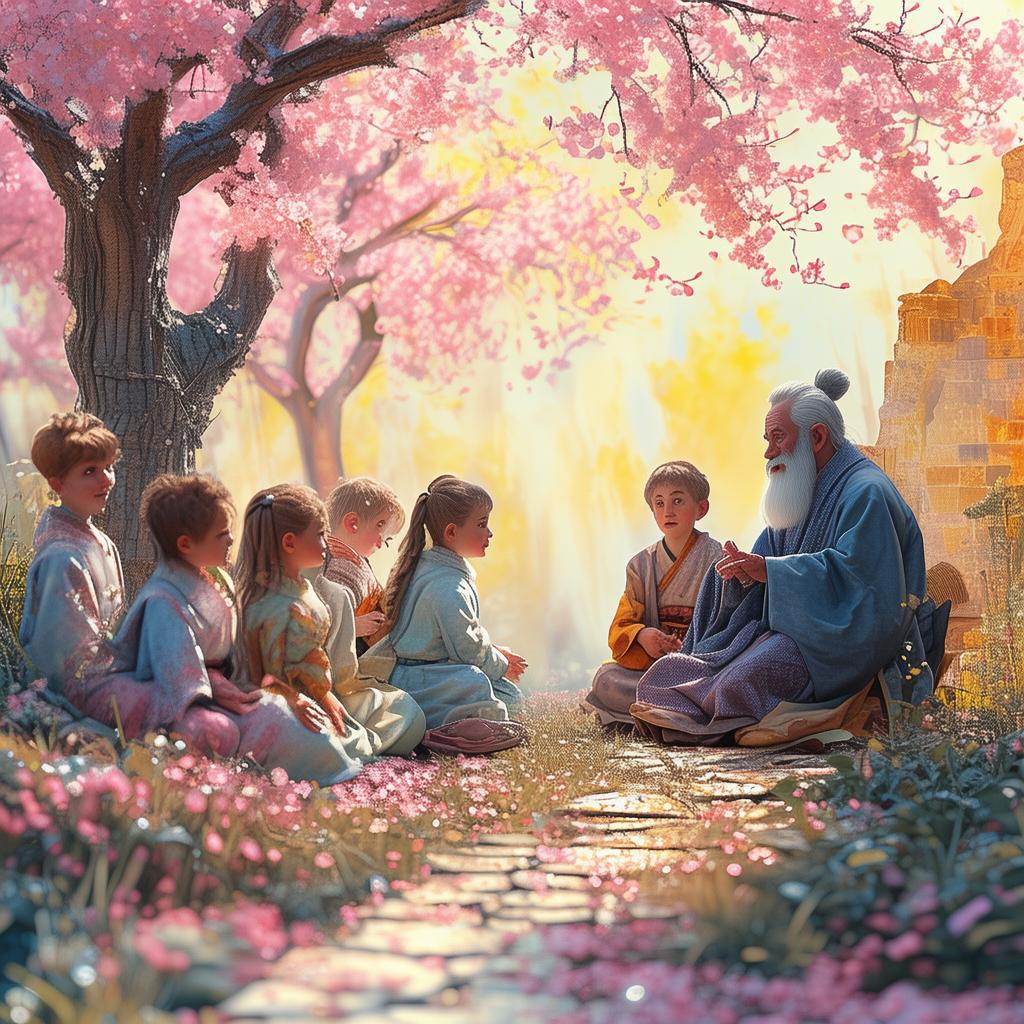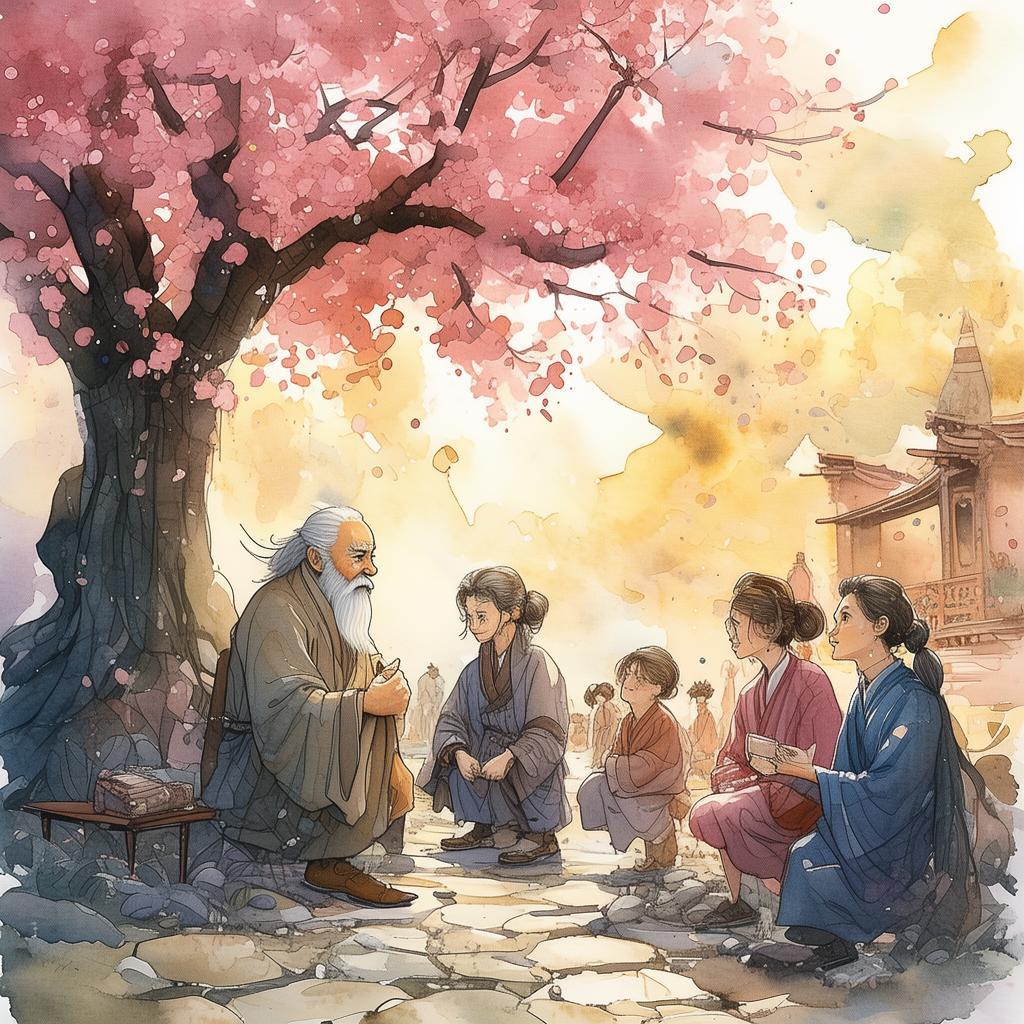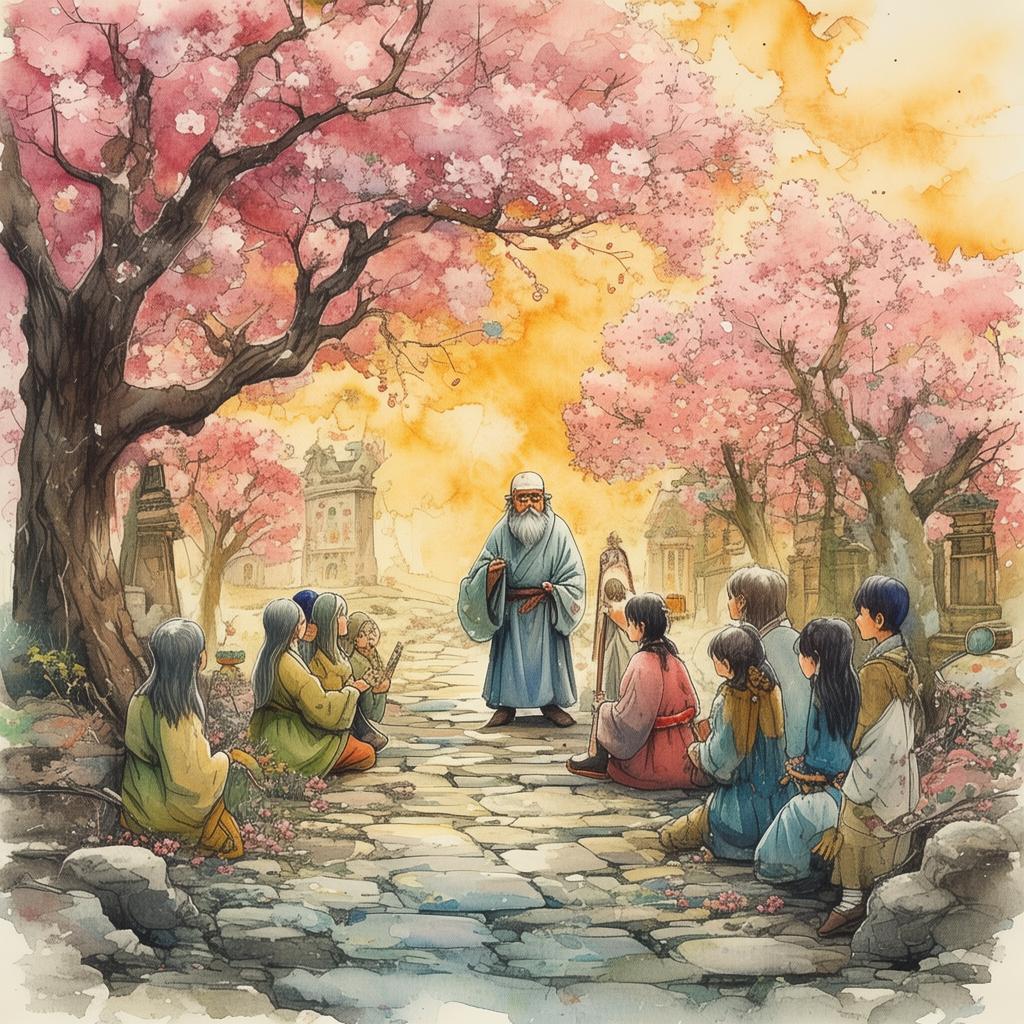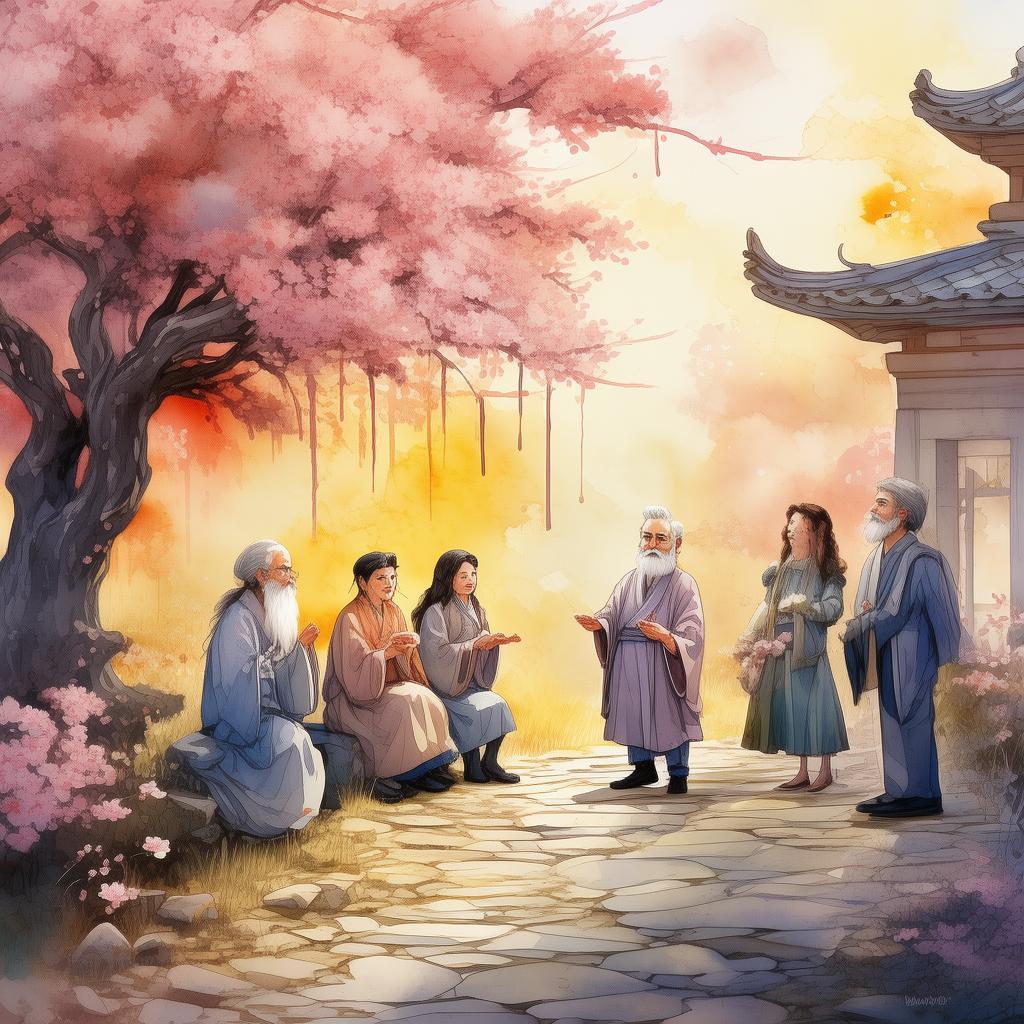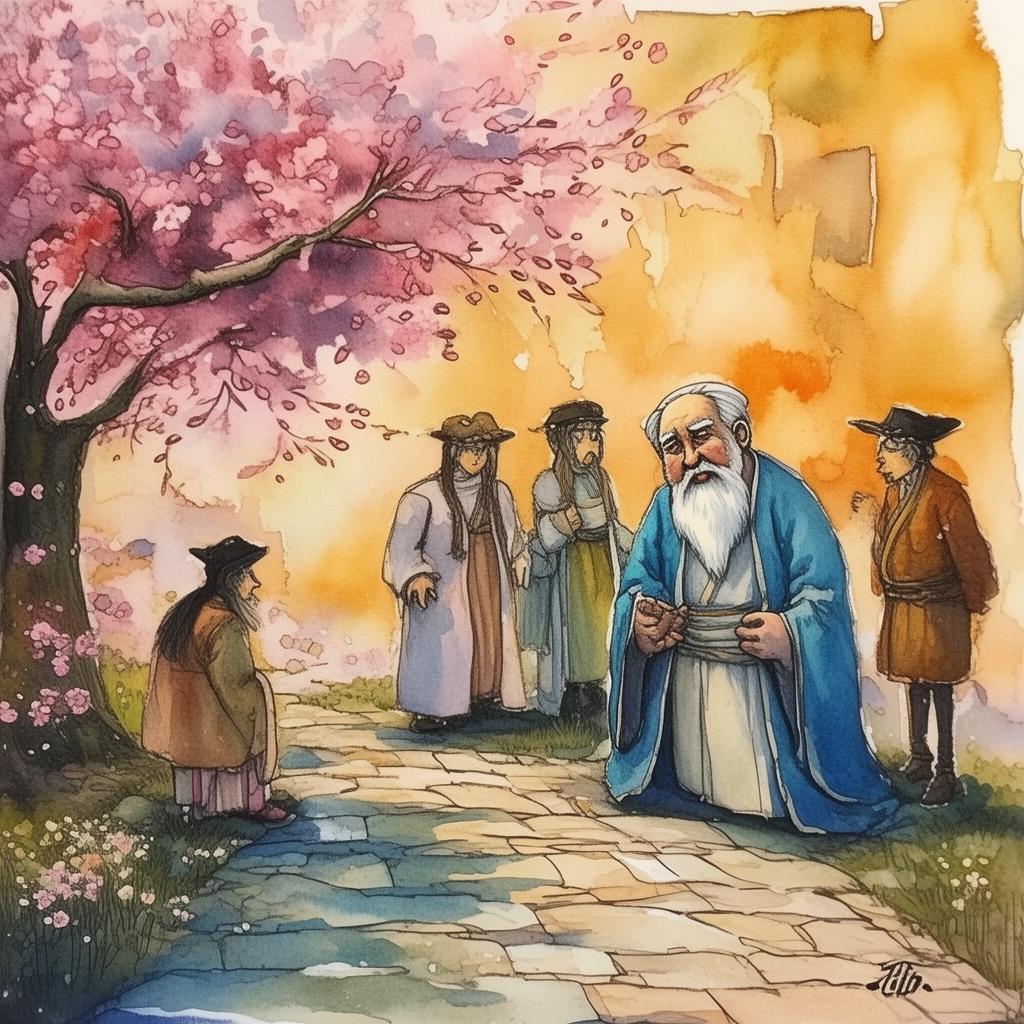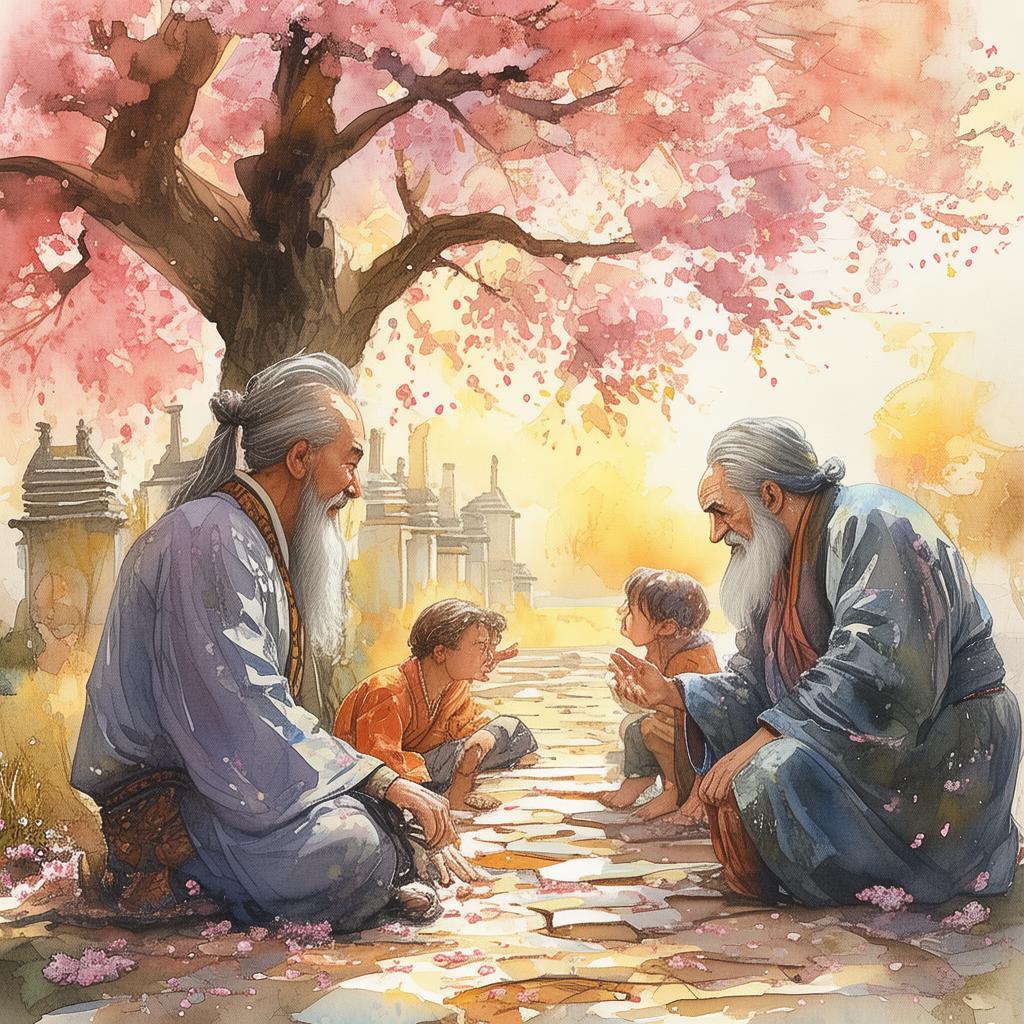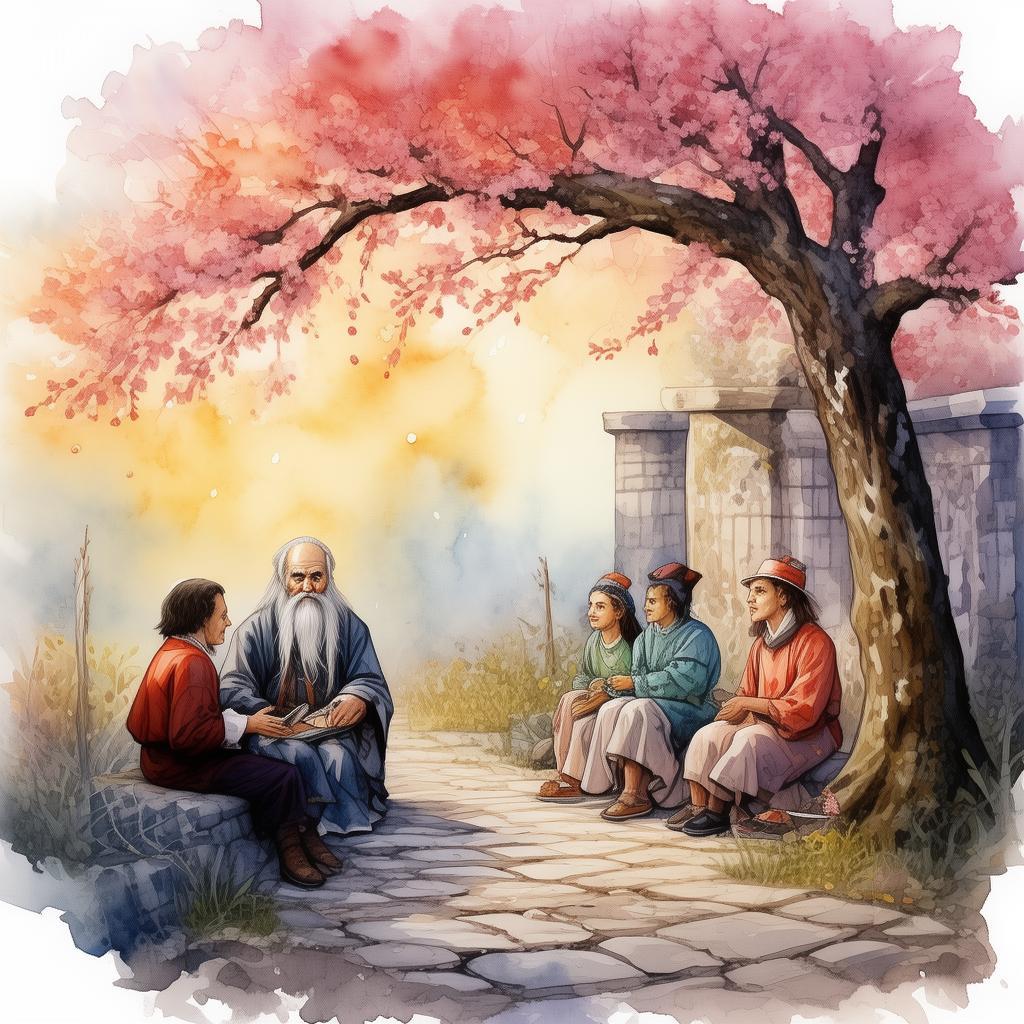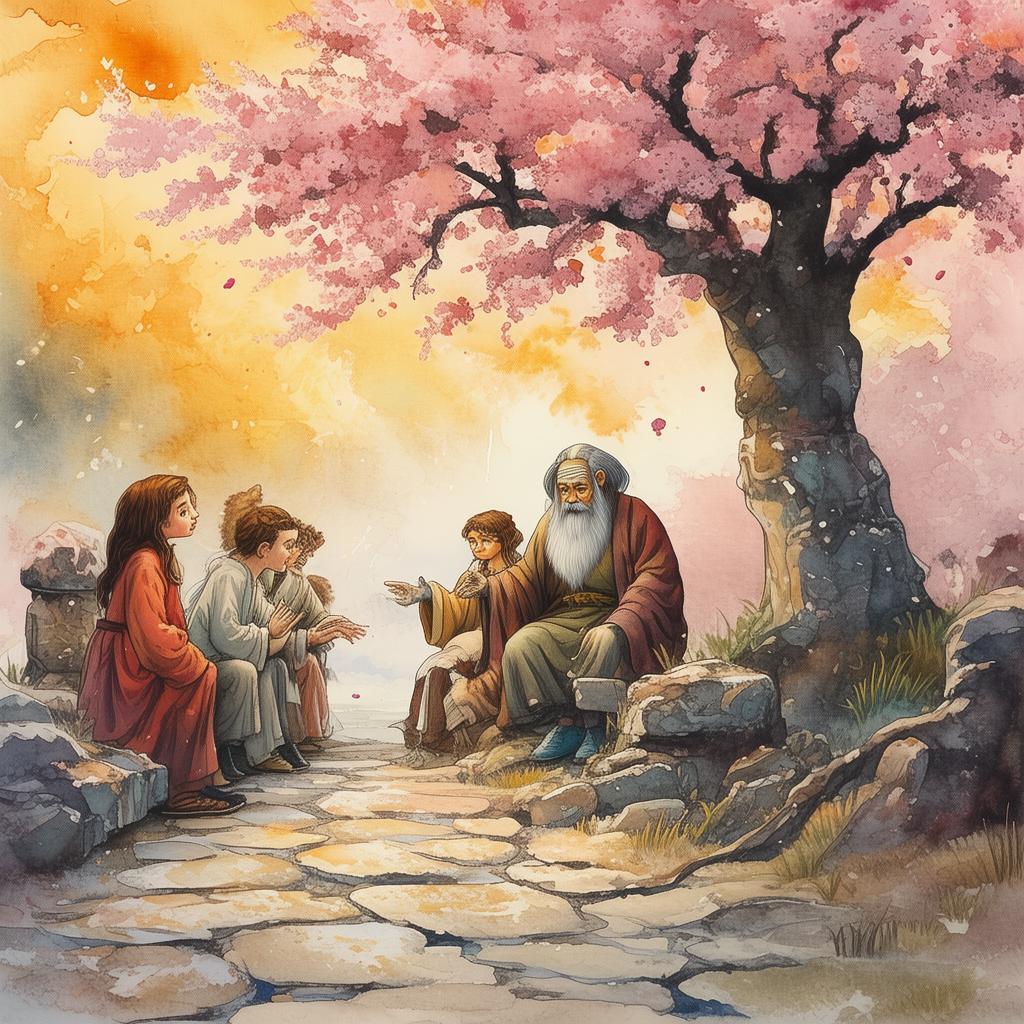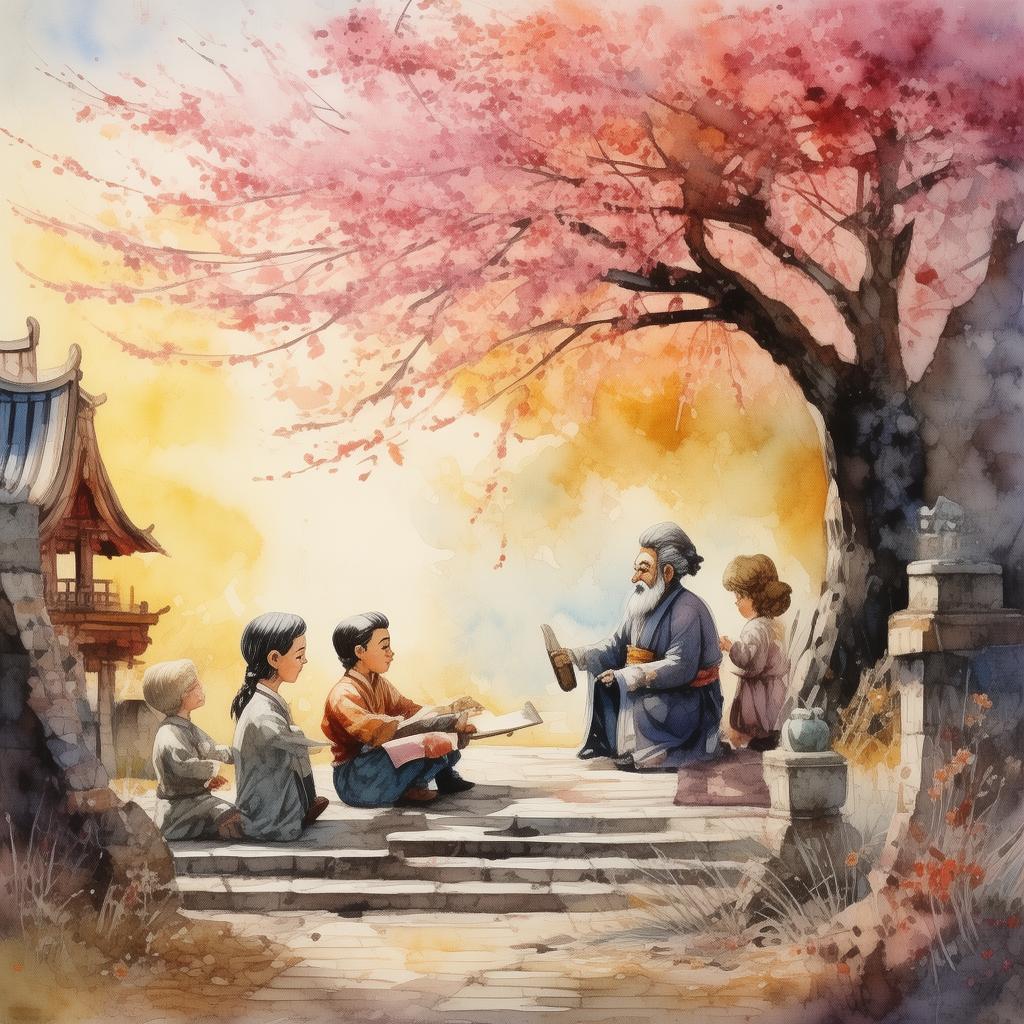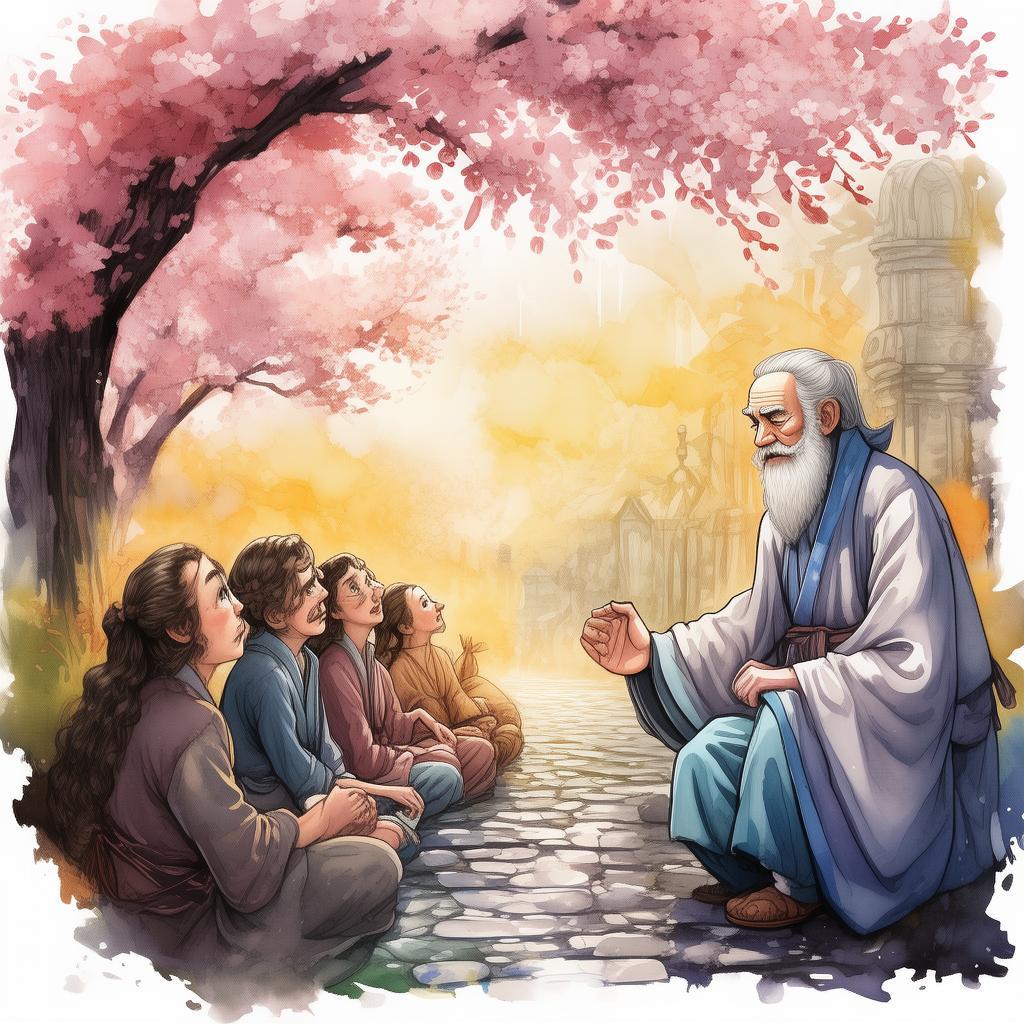The Enlightenment's Paradox: The Quest for Balance
In the bustling city of Erudition, nestled between the towering spires of the Great Library and the sprawling meadows of Reflection, lived a scholar named Xin. Xin was known far and wide for his unparalleled intellect and scholarly pursuits. His days were filled with the study of ancient texts and the contemplation of profound philosophies, but as the years passed, a gnawing sense of emptiness began to take root in his mind.
One day, Xin stumbled upon a rare tome, "The Scholar's Scroll: The Art of Living in the Age of Enlightenment." The scroll spoke of the balance between reason and emotion, a balance that was often lost in the fervent pursuit of knowledge. Intrigued by the scroll's message, Xin resolved to embark on a journey to find this balance, for he believed it to be the key to true enlightenment.
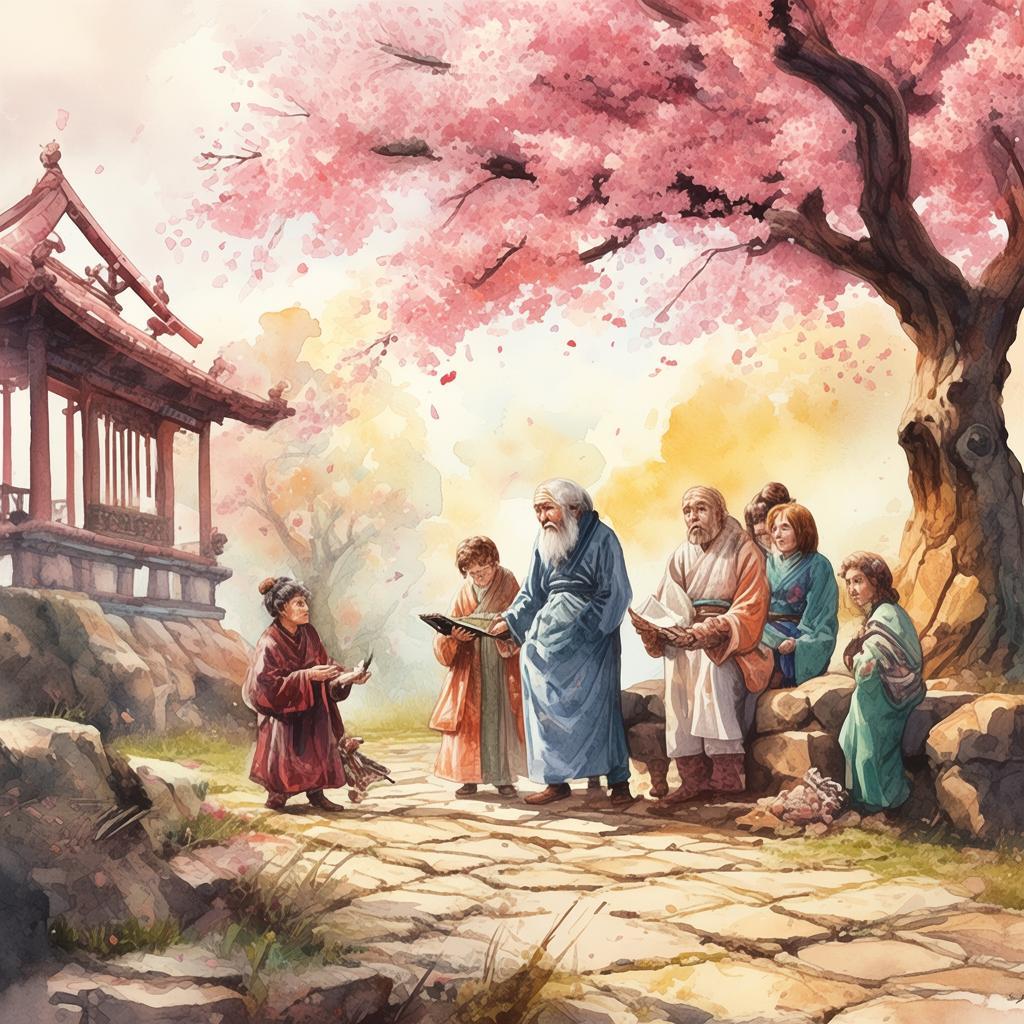
Xin's first stop was the Temple of Reason, where he sought to refine his logical thinking. The temple was a marvel of architecture, its walls adorned with mathematical equations and philosophical diagrams. Xin spent days poring over the temple's teachings, but he found himself growing increasingly frustrated. The pursuit of reason alone, he realized, left him feeling hollow and disconnected from the world.
Undeterred, Xin set out for the Garden of Emotion, a serene place where the flowers bloomed in vibrant colors and the birds sang in harmonious melodies. Here, Xin sought to immerse himself in the depths of his feelings, hoping to find the balance he so desperately craved. He spent days walking through the garden, listening to the sounds of nature and feeling the gentle caress of the breeze. Yet, Xin found that the garden's beauty was fleeting, and the emotions it evoked were as transient as the flowers themselves.
Determined to continue his quest, Xin ventured into the marketplace of Ideas, a place where every thought and belief was debated and challenged. Here, he engaged in lively discussions with philosophers, poets, and scientists, each offering their own perspective on the balance between reason and emotion. While the marketplace was a treasure trove of knowledge, Xin realized that it was also a place of conflict and division, and he grew weary of the constant bickering.
In his search for balance, Xin had become lost and disheartened. He wandered the streets of Erudition, his mind clouded by confusion and doubt. One evening, as he sat by the river, gazing at the serene waters, a wise old man approached him. The old man, who called himself the Guardian of Balance, noticed Xin's distress and offered him guidance.
"The balance you seek," the Guardian said, "lies not in the pursuit of reason or emotion alone, but in the harmony of both. It is in the acceptance of your own limitations and the understanding of others' that true balance can be found."
Xin listened intently, and as the Guardian spoke, he began to see the truth in his words. He realized that the pursuit of knowledge was not an end in itself, but a means to an end—a means to understand the world and oneself better.
With newfound clarity, Xin returned to the Temple of Reason and the Garden of Emotion, but this time with a different mindset. He learned to appreciate the beauty of logic and the depth of emotion, understanding that both were necessary for a complete understanding of life. He engaged in discussions in the marketplace of Ideas with a newfound respect for differing opinions, and he found that harmony could indeed be achieved through the acceptance of diversity.
As the days passed, Xin's journey brought him back to the Great Library, where he had begun his quest. He realized that the true enlightenment was not found in the pursuit of knowledge alone, but in the journey itself—the journey of self-discovery and understanding.
Xin returned to his studies with a renewed sense of purpose, and he began to share his wisdom with others. His teachings spread far and wide, and soon, Erudition became a place where scholars sought not only knowledge but also the harmony of reason and emotion.
The Enlightenment's Paradox: The Quest for Balance was a tale that resonated with the people of Erudition, and it served as a reminder that the path to true enlightenment was not a straight line but a winding road, one that required balance, understanding, and an open heart.
✨ Original Statement ✨
All articles published on this website (including but not limited to text, images, videos, and other content) are original or authorized for reposting and are protected by relevant laws. Without the explicit written permission of this website, no individual or organization may copy, modify, repost, or use the content for commercial purposes.
If you need to quote or cooperate, please contact this site for authorization. We reserve the right to pursue legal responsibility for any unauthorized use.
Hereby declared.
